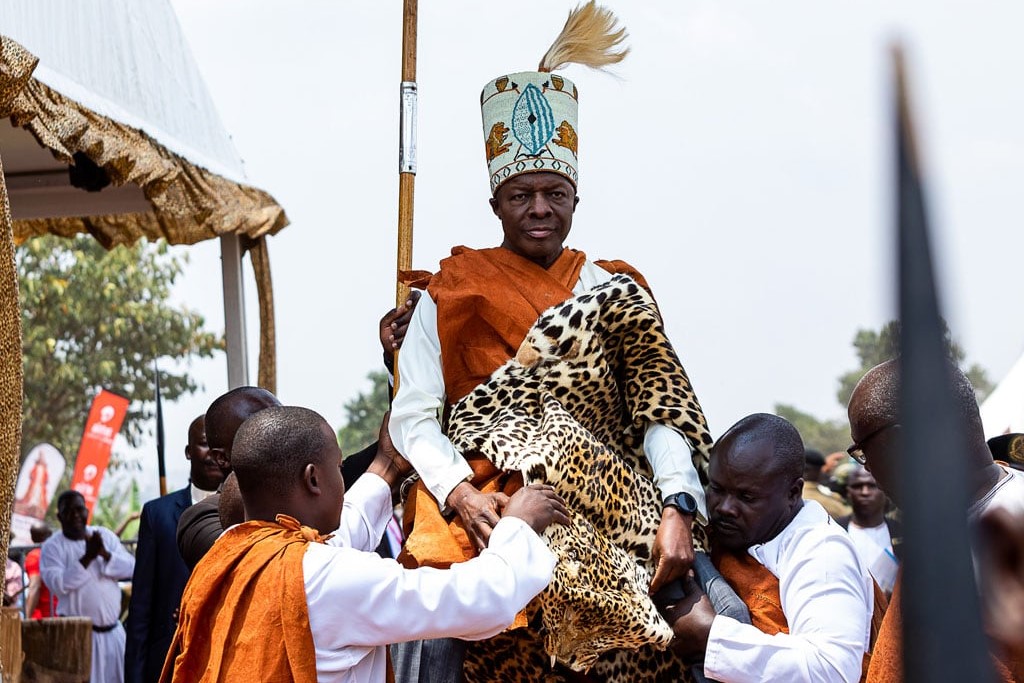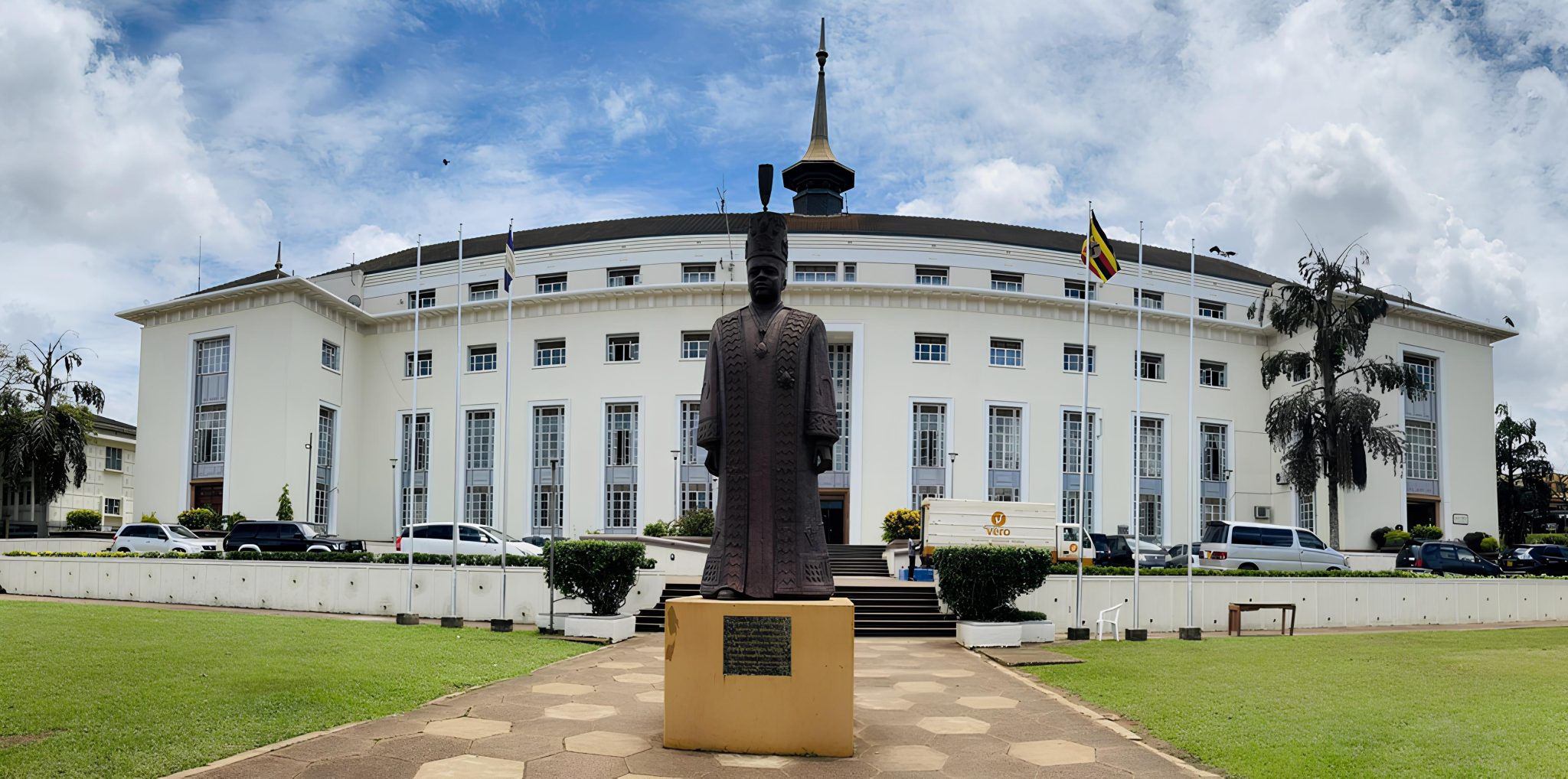Exploring Buganda Kingdom: The Historical Heart of Uganda.
Buganda Kingdom is one of the most iconic and prominent Kingdoms in Uganda that is very renowned for historical importance and has much to offer when exploring the country’s royal heritage and culture, coupled with resilient people. Geographically, Buganda falls in the central part of Uganda; its history dates back several centuries to the grassroots story of the country. This is one of the oldest kingdoms in Africa, and it is at the core in shaping Uganda’s social, political, and cultural landscape.
A History of Buganda Kingdom.
The Buganda Kingdom is among the oldest kingdoms in Africa. Its history can be traced as far back as the 14th century and was founded by the semi-mythical King “Kabaka” Kato Kintu Kakulukuku whose origins are cloaked in both myth and history. According to local tradition, it is said that Kintu was the first King (Kabaka) to rule over Buganda, henceforth ushering in a golden era which would lay the foundation for a thriving, prosperous society.
Buganda developed throughout the centuries as a very influential monarchy. The kings of Buganda, who had the title “Kabakas”, have always been the focal point of the political and cultural life within that kingdom. Buganda was associated with well-organized administrative structures, military strength, and an intriguing system of governance accompanied by a very active council of elders while under the guidance of its kings.
The Buganda Cultural Significance.
The Buganda Kingdom is a culturally rich region, and much of the national identity of Uganda is deeply connected with Buganda traditions. In art, dance, music, dress code, and language, the culture of the kingdom excellently reflects it. The Baganda’s are an ethnic group that makes up the majority population of this kingdom, having a unique way of life with most of their customs and traditions well preserved through generations.
Luganda is the language spoken by people of Baganda. It is one of the most spoken languages throughout Uganda and, to some extent, unifying. It is a language with lots of sayings, proverbs, and other idiomatic expressions that show the rich cultural and social heritage of the kingdom. Any person visiting Buganda might hear Luganda spoken in marketplaces, schools, and villages; hence, it has been integrated into everyday life.
The kingdom also has various ceremonies and rituals which are complex, especially relating to the Kabaka. To this end, for instance, the day on which the Kabaka was born is celebrated with noise, music, dancing, and colorfully; it usually attracts thousands from within Uganda and overseas, showing how great a respect and loyalty the Baganda people have toward their royal family.
Current Top Administration of Buganda Kingdom.
The current Buganda Kingdom government is headed by His Majesty the King Kabaka Ronald Edward Frederick Kimera Muwenda Mutebi II, who became the king in 1993. As the cultural head, the Kabaka ensures that the ties of the Baganda people and their culture are managed with unity. Kabaka is leads the Kingdom of Buganda with the strong support from the Queen, Nnabagereka Sylvia Nagginda, who plays a vital role in championing social and cultural initiatives. The Nnabagereka is a prominent advocate for women’s empowerment, child welfare, and community development through her foundation, the Nnabagereka Development Foundation (NDF). The kingdom has a well-organized government headed by the Prime Minister “Katikkiro”, currently Owekitiibwa “Owek” Charles Peter Mayiga, who oversees the day-to-day running of the government and its cultural activities.
Buganda’s administration focuses on cultural preservation, socio-economic development, and fostering unity among the people. Institutions such as the Lukiiko-Parliament and other clan leaderships support governance in the kingdom. The kingdom has spearheaded programs in education, health, and land rights, while at the same time keeping its rich traditions and promotion of cultural tourism.

The Kabaka: Source of Unity and Strength.
Kabaka is the king at the center of Buganda Kingdom and is more than a political head; he symbolizes the Baganda people’s cultural unity. The office of the Kabaka is sacrosanct and highly regarded, and his leadership is premised on the belief that he is ordained by the gods. A Kabaka wields influence that spreads beyond the borders of Buganda, a lot into the national politics of Uganda.
At the heart of Kampala lies the palace of the Kabaka, Lubiri, a reminder and major symbol of Buganda’s royal past. Visitors come in as tourists to get a glimpse of the grandeur that typifies the royal life of Buganda. The palace is not just a place of residence but is also part of the historic sites, its walls telling a story of Buganda’s glorious past, the political struggles it has been through, and about a resilient people.
The Role of Kabaka in Society.
He plays an vital role in the Cultural life as well as the social and spiritual lives of his subjects in the Buganda Kingdom. Though under normal practice the Kabaka was head of the paramount chiefdoms, Uganda became a republic; the Kabaka still holds great influence in the Buganda Kingdom. The people regarded him as the father of the nation, and through his leadership, he has always tried to ensure that the unity and traditions of the kingdom are maintained.
He is not only a ruler but also the custodian of the Baganda’s customs to guide the religious and traditional events. The influence of the Kabaka extends beyond the confines of the kingdom, and he is a very powerful symbol of Ugandan pride in culture.
Buganda Kingdom and Ugandan People.
Buganda is one of the numerous kingdoms in Uganda, though its influence surpasses many. The Buganda Kingdom is a link to Ugandan history in that the Buganda cultural practices have molded the wider Ugandan society. Buganda has thus stood as an emblem of the union and pride of its peoples and acts as a point of cohesion for administration. This was never destroyed by the forces of colonialism and political change with modernization to stand today to testify to the resilience and strength of the people.
The Buganda people, the Baganda, are proud, warm, and full of community. Traditionally, they have a rich reputation for dances, music, and handcrafts. They pride themselves on being hospitable. In the Buganda Kingdom, communities open their doors to visitors in true affection and generosity.
The Role of Buganda in Ugandan Politics.
The Buganda Kingdom has usually held vast influence over the national politics of Uganda. Pre-colonially, Buganda was among the most powerful kingdoms in the region, with its kings controlling wide tracts of territory. During colonial rule, Buganda retained its status as a kingdom; under the British protectorate system, however, much changed in the political structure of this kingdom.
Since Uganda’s independence in 1962, the kingdom of Buganda was abolished in 1967 by President Milton Obote, as were other kingdoms. In 1993, the president of Uganda, Yoweri Museveni, restored all traditional kingdoms, which included Buganda. Today, the Kabaka fulfills a symbolic role and, though he does not have any direct political influence, he is still an influential figure as a cultural leader. It is headed by a Prime Minister in the administration of the kingdom, and Buganda Kingdom has remained an integral part in the social and cultural life of Ugandans.

Tourist Attractions in Buganda Kingdom.
Kasubi Tombs: The Kasubi Tombs are one of the most important cultural areas in Uganda because it is the site where four former Kabakas were buried. The site is listed in UNESCO and represents a spiritual center of the people of Baganda. The tombs mean so much more than graves; they are just the symbol of the rich history of the kingdom, and at the same time, the respect towards its royal family.
The Kabaka’s Palace, Mengo Palace: This is located on the historical hill of Mengo in Kampala and is an architectural masterpiece; thus, this also forms part of the things one should not miss to see upon interest in learning more about Buganda Kingdom. The grounds also include a traditional museum where you can learn more about Buganda’s royal heritage.
Uganda Martyrs Catholic Shrine: Situated at Namugongo, in Kampala’s outskirts, the Uganda Martyrs Shrine counts as one of the important religious sites when it comes to Uganda. The Shrine commemorates 22 Christian converts killed for their faith in the 19th century. This is a very significant spot to many Ugandans and especially Buganda people.
Naggalabi (Coronation Site) – This is where new Kabakas are crowned traditionally. The beautiful open grounds are ideal for exploring the historical roots of the Kingdom’s royalty.
The Uganda Museum – Though not part of Buganda, the Uganda Museum in Kampala features an array of exhibits about the cultural history of Uganda, hence showcasing the traditions, crafts, and history of the Baganda people.
Festivals and Traditions in Buganda
Buganda hosts many festivals and events that show its culture. One of the most famous is the Kabaka’s Birthday Celebrations, held every April, which draws people from across Uganda. The Kabaka Birthday Run Marathon has attained more numbers in previous years and all the proceedings from this amazing event are used to improve the health, education and social infrastructures in both Buganda and Uganda at large. Other prominent events include the Enkuuka Festival, which happens on 31st December of every year to celebrate Buganda music and dance, and Omweso, a local board game of the Baganda people.
Most of the ceremonies are graced with traditional dance performances, music, and feasts that keep Buganda’s culture very lively. The tourists visiting Buganda Kingdom get a chance to experience firsthand such cultural events and feel all the energy and spirit which this historic region has to give.
Conclusion: Legacy and Cultural Kingdom
Buganda Kingdom is more than a historically rich area; it’s a culture that continued to increase in growth and influence the people of Uganda to date. Visiting Buganda means exposure, at an intimate level, with grand royal palaces, elaborate celebrations, and certain traditions and customs among the Baganda people. Buganda thus represents a whole wealth component of Uganda’s past and present, which would definitely satisfy one’s curiosity in African history and culture and the traditional bonding force within its society.
Buganda Kingdom is among those places that any traveler would want to dive deep into the heart of Uganda for those experiences that create lifetime memories, celebrating the rich heritage of the Baganda.











